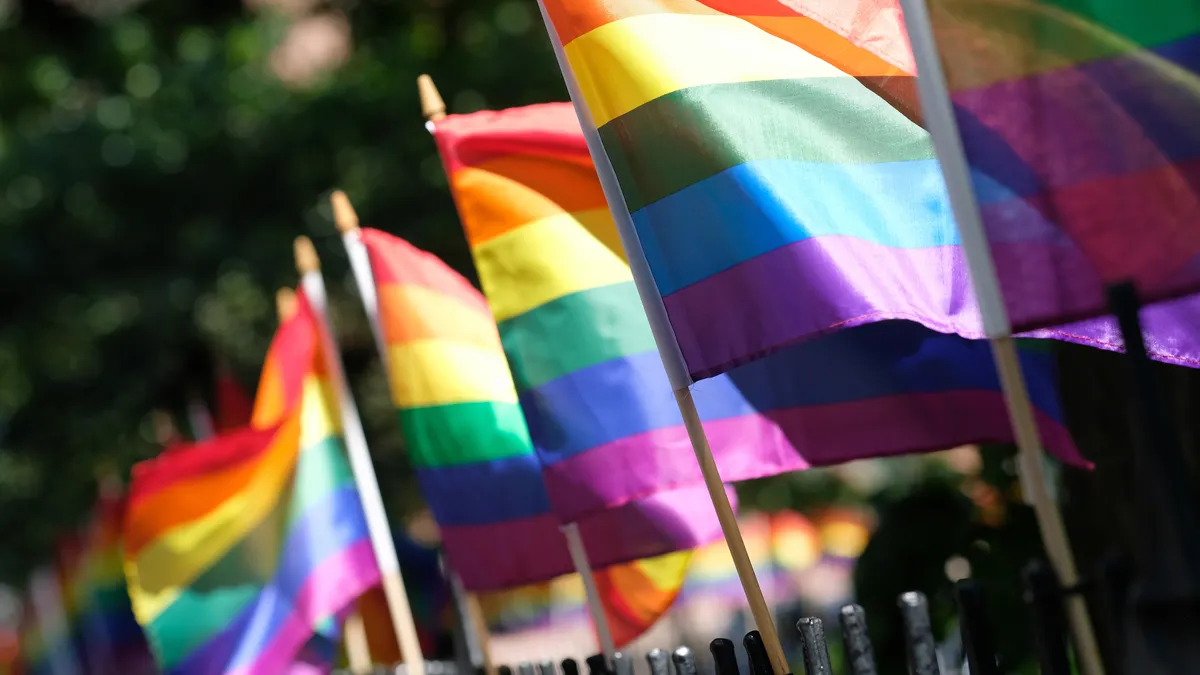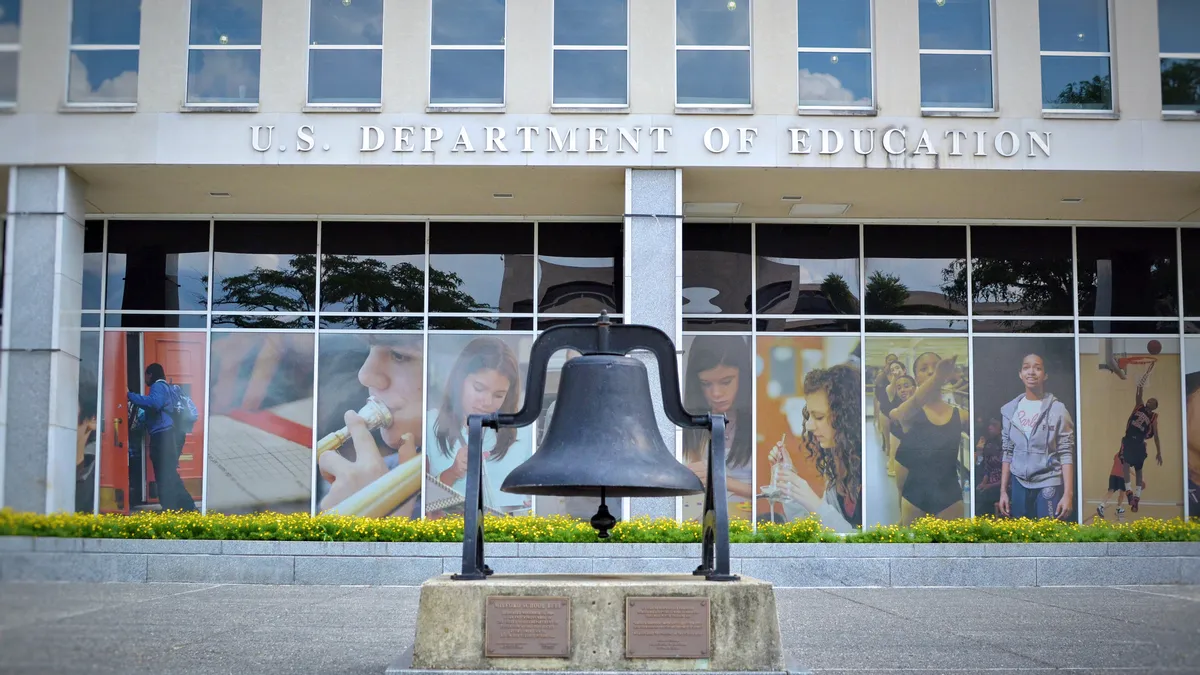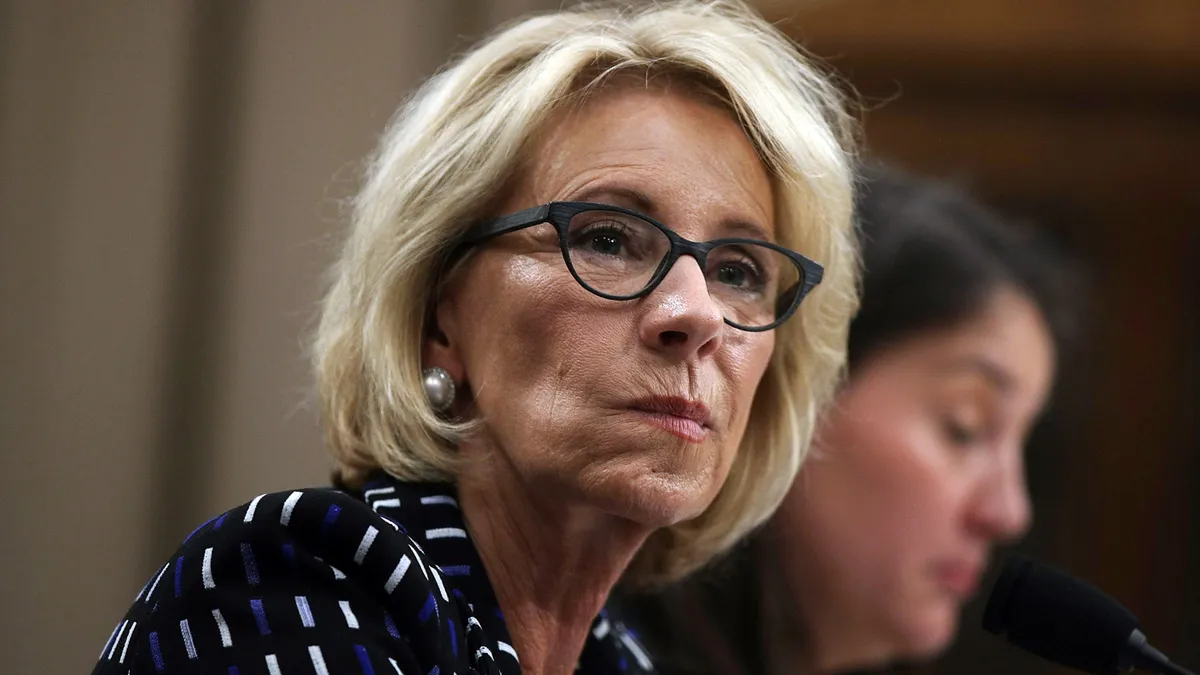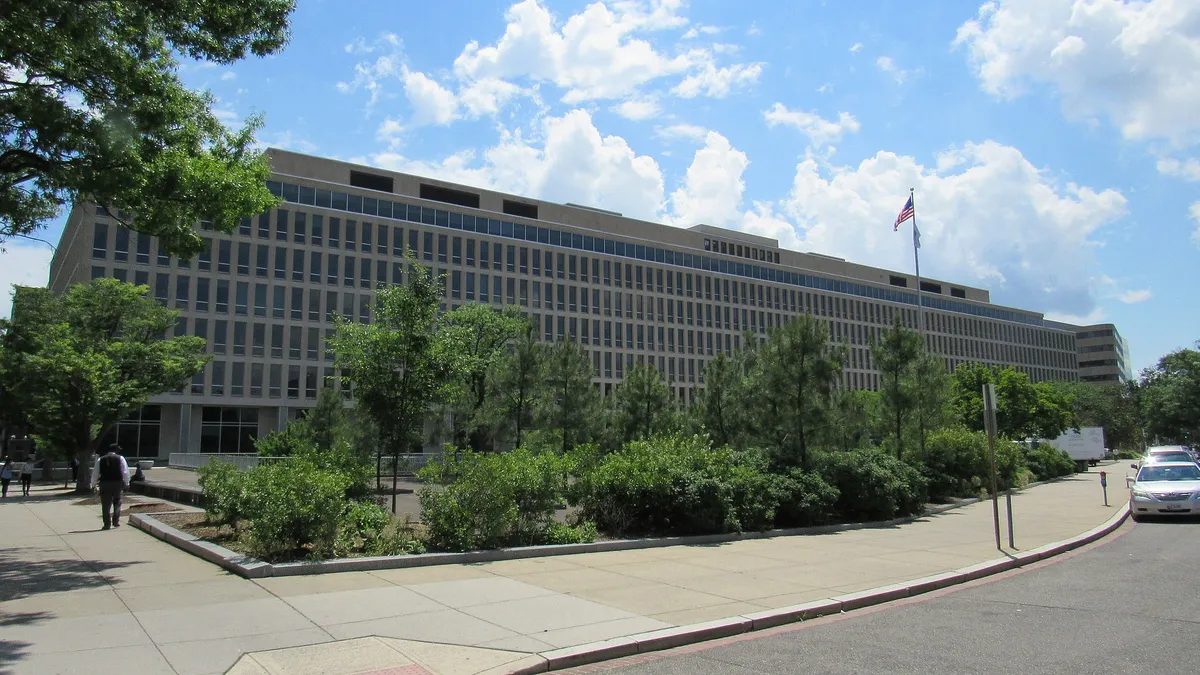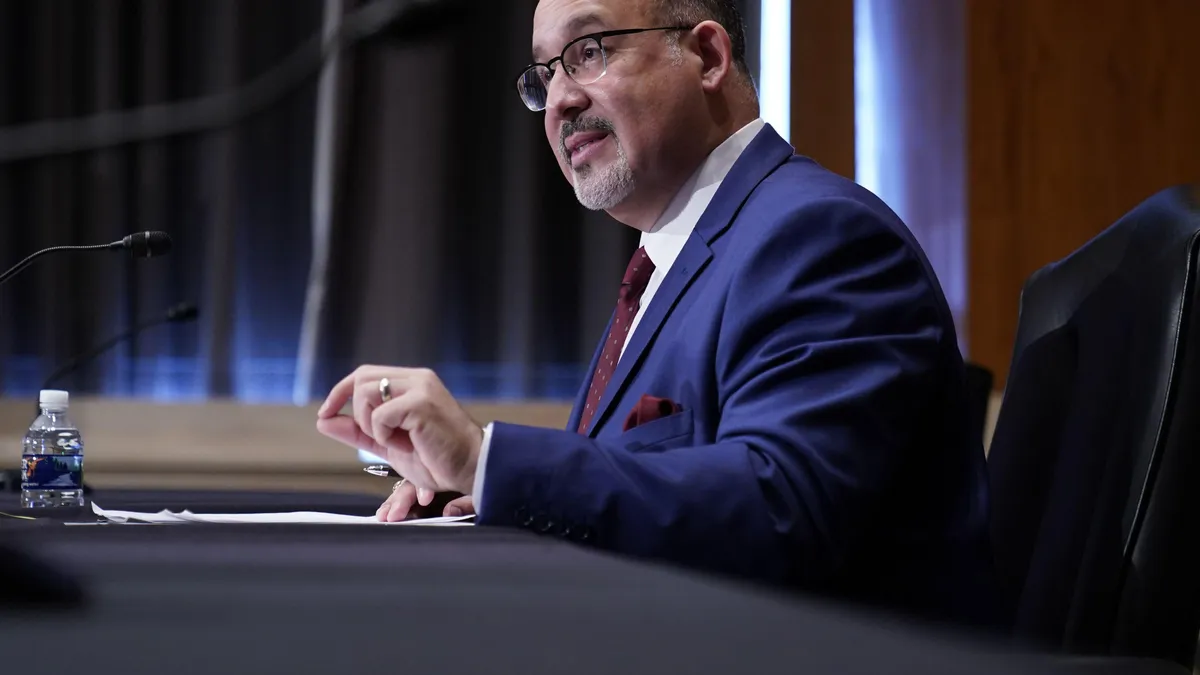Dive Brief:
- The U.S. Department of Education said Wednesday that discriminating against gay and transgender individuals violates Title IX, the federal law banning sex-based discrimination on campuses.
- The department based its decision on a 2020 Supreme Court ruling — Bostock v. Clayton County — that established those protections in federal employment law.
- The move trails an executive order earlier this year requiring federal agencies to ensure their policies and regulations don't discriminate against people based on their sexual orientation or gender identity.
Dive Insight:
Following Biden's order, which came on his first day in office and cited the Bostock ruling, the U.S. Department of Justice in April issued a memo stating that sexual orientation and gender identity are protected classes under Title IX. That document also cites the Bostock ruling and notes that federal courts have already been applying it to Title IX decisions.
Bostock centered on Title VII, a federal employment law that bans discrimination "because of" sex. Its language is similar to Title IX, which prevents discrimination "on the basis of sex." In its notice of interpretation, the Education Department said it "finds no persuasive or well-founded basis" for not applying Bostock to Title IX.
The Trump administration rejected such a comparison. Ed Department officials contended in a memo published a few weeks before Biden's inauguration that Title IX and Title VII are “very different … in many important respects,” such as that Title IX allows for activities to be segregated by sex. As a result, they said, the Bostock ruling did not apply to Title IX.
That interpretation was one of several ways the former administration rolled back protections for transgender people across federal agencies. Some states shared that stance, creating a swath of anti-transgender legislation, including bills that would ban transgender women from playing on teams corresponding with their gender identity.
U.S. Education Secretary Miguel Cardona recently pushed back on the sports legislation. And he told The New York Times that Wednesday's announcement signals the department will not stand for discrimination at federally funded schools. However, the Times points out potential limits of the department's decision, including that states with laws that go against the policy could ignore it.
The new interpretation comes as the department lays the groundwork for a possible overhaul of its Title IX regulations. Public hearings last week focused on the Trump administration's rule, which took effect in August 2020. Some commenters said the rule added a burden to colleges and led to fewer Title IX complaints.



